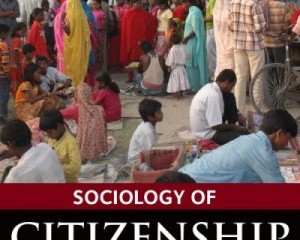
Plurinational citizenship in the making
In 2009, after a long and contentious process of national dialogue that led to the approval of a new Constitution, the Republic of Bolivia officially changed its name to Plurinational State of Bolivia.
Over the last decade, the idea of plurinationalism has influenced public debates across the Andean region. In 2008, the Ecuadorian president Rafael Correa defined plurinationalism as the coexistence of several different nationalities within a larger state where different peoples, cultures and worldviews exist and are recognized. Yet, Bolivia was the first country to go all the way, not only including this idea in the Constitution (as Ecuador did) but actually changing its official name. This is not just a formality. The new Bolivia is engaging in a process of in-depth institutional reforms, challenging mainstream narratives and political structures and reinventing a model of the state and creating notions of citizenship better suited to highly diverse ethnic and cultural landscapes.
In Latin America, the effort to challenge assimilationist and universalist models of citizenship (both republican and corporatist) took shape during the 1990s, when multicultural politics emerged and culture and identity became legitimate political claims. However, multiculturalism was not an easy partner for the neoliberal consensus, and claims for collective (rather than individual) rights and for territorial autonomy raise what Deborah Yashar (1999) calls a “postliberal challenge”. While concepts such as multiculturalism and pluricultural citizenship were a key part of the neoliberal agenda, it was with the Leftist turn in the following decade that the more radical idea of a plurinational state took shape. In Bolivia, the election of Evo Morales as President in 2005 and the rise of the Movement Towards Socialism (MAS) gave political meaning to plurinationalism as an alternative model of state and citizenship, which was meant to overcome the neoliberal multicultural framework for diversity management.

The Sociology of Citizenship
Political theorists, sociologists and anthropologists are increasingly open to the idea that citizenship goes beyond the legal status conferred by states upon individuals in a national political community. The contributors to this series will focus on the concrete, empirical ways in which people make meaning of citizenship and the manner in which they forge and imagine membership in the political community. Contributors will draw on their on-going research in different parts of the world, including South Asia, the Middle East, Eastern Europe, Africa and Latin America.

The future of fiscal squeeze: More of the same?
What can we learn about the future of fiscal squeeze in the UK (defined as substantial political effort to increase revenue or cut public spending or both) from looking at past cases? Is current or recent ‘austerity’ in a class of its own when we put it into historical perspective, or is it part of an evolving pattern?
The table below identifies a total of twenty UK ‘squeeze’ episodes over a century (which can be qualitatively grouped together into roughly thirteen) in which revenue increased or public spending fell by a significant amount relative to GDP. We define a ‘hard squeeze’ as one in which revenue rose or spending fell both in absolute constant-price terms and relative to GDP, and a ‘soft squeeze’ as one in which revenue rose or spending fell on one of those measures but not the other. The table also records the variety of governments involved in squeezing (right or left, coalition, majority-party, minority), the delegation or otherwise of economic policy functions or decision advice relating to interest rate setting, consideration of spending economies, and financial/economic forecasting.
Of course, deriving consistent data series from historical statistics over a hundred years is far from problem-free, so we should not try to read too much into small differences. And two of those thirteen episodes occurred during the special circumstances of the two twentieth-century world wars, involving very sharp revenue squeezes together with cuts in civilian spending to fund a huge blowout in military spending when party electoral competition was largely suspended. But even allowing for such issues, three changes over time stand out from this analysis.
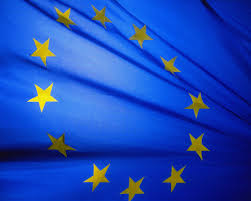
Austerity and Euroscepticism: The End of EU Development Cooperation?
The financial crisis and its aftermath have brought to light the crisis of European integration, more precisely the crisis and potential demise of a certain approach to integration pursued since the early 1950s. The demise of an allegedly inevitable ‘ever closer Union’ pursued primarily in a technocratic way predates the turmoil which started in late 2008. The escalating struggle between European institutions and member states, buttressed by the rise of popular distrust, seems to emerge as one of the biggest challenges to European integration.
dev aidIn development cooperation, an area of ‘shared’ competences between the EU institutions and the member states, it has remained unexplored how economic recession, the sovereign debt crisis, austerity, the struggle in the eurozone and increasing Euroscepticism have affected the relationship between the EU and its member states.
EU aid has undeniably been affected. Significant cuts to bilateral aid budgets due to the consolidation of public finances have reduced member states’ willingness to pool further resources and competences in Brussels. Instead, member states have shown an increasing tendency to operate on their own or in like-minded groups, and focus on inward-looking aid policiesdriven by national interests and priorities.
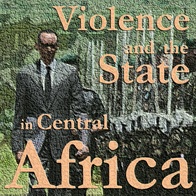
Paying your soldiers and building the state in post-genocide Rwanda
Ensuring soldiers have legal access to financial resources is crucial for the state to fulfil its primary mission: retain the monopoly of violence. As seen in the Democratic Republic of Congo, difficulties providing soldiers with adequate resources may result in deteriorating discipline, corruption, defection, and human rights abuses.
Rwanda after the genocide faced the difficult task of paying its soldiers. The post-1994 situation made this challenge inescapable. The Rwandan Patriotic Front (RPF) took power in a ruined country. The economy was entirely destroyed, and fleeing officials of the previous regime had emptied state coffers. The resources to pay soldiers were virtually non-existent. In addition, following the RPF victory, many families returned from exile to Rwanda. Consequently, soldiers of the Rwandan Patriotic Army (RPA, the armed wing of the RPF) were not just guerrilla fighters anymore: they became fathers, husbands, or brothers again. This new financial burden on soldiers’ shoulders created a form of indiscipline largely unknown until then in the RPA’s ranks. In addition, the meagre salaries were made in cash, transported by intermediaries from the Ministry of Defence to soldiers, which multiplied the opportunities for embezzlement and the creation of ‘ghost soldiers’. Worse, the opportunities for soldiers to borrow money were extremely limited at the time. Many had no property in Rwanda and consequently no collateral to offer to the few banks still functioning.
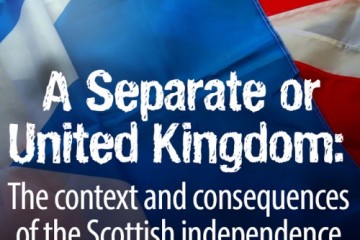
(Under)taxation of North Sea Oil and Gas Production and its Implications for Scottish Independence
The Guardian newspaper recently published an article by Aditya Chakrabortty entitled ‘Dude, where’s my North Sea oil money?’ (13 January 2014), which drew a comparison between Norway and the UK in terms of what approximately four decades’ worth of fiscal income from oil and gas production has meant for each country. The main thrust of the article was to suggest that the reason why the UK does not have a colossal nest egg like Norway’s is that the UK government effectively squandered its windfall in tax breaks. That is true, but not in the way Chakrabortty thinks.
Starting in 1981, once the Falklands conflict (and the need to pay for it) was over, the UK government led by Margaret Thatcher embarked on a process (which accelerated greatly under John Major and even more so under the Blair-Brown Labour governments) of levying progressively less and less taxes on oil and gas exploration and production activities. In other words, Chakrabortty is right in saying that most of the windfall was squandered in tax breaks but, overwhelmingly, the main recipient of these tax breaks was the UK oil and gas industry. As oil prices have skyrocketed from 2000 onwards, the differences in the amounts that the UK levies compared to other large North Sea producers (and not only Norway) have reached astonishing proportions.
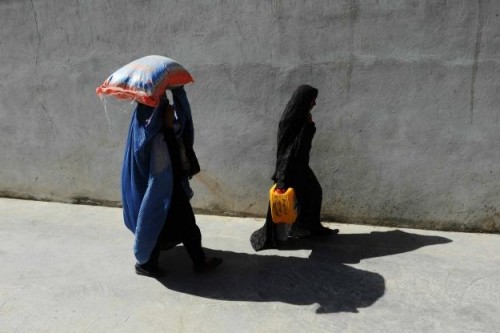
Stabilising provincial Afghanistan: How to get It right
Kabul’s ongoing presidential election negotiations aren’t the only dramatic transition underway in Afghanistan. The ambitious U.S.-led “surge” launched in 2009, which bolstered foreign troops mainly in southern and eastern Afghanistan, has given way to a drawdown, paralleling a major downsizing in the development sphere. Aid budgets are contracting, and provincial reconstruction teams (PRTs) and other subnational civil-military installations — long key international platforms to distribute aid and engage local politics outside Kabul — are closing down.
As the local-level foreign official presence phases out of more volatile and remote areas, how should donor assistance strategies adjust? A new paper from the U.S. Institute of Peace, which builds upon fieldwork from the past three years, argues that 2014 marks an important opportunity for donors to recalibrate three central tenets of their subnational governance and development strategy.
First, donors should revise their conceptions of assisting Afghan government “service delivery.” To be sure, delivering services seems commonsensical in a country that sorely lacks them, but PRT-based projects often confused their ambition to cultivate recurring services with their reality of launching a constellation of unsystematic and often one-time projects. The sheer numbers of foreign personnel and agencies operating at the subnational level — all responding to a higher-level focus on “burn rates” — further fueled the disparate character of aid distribution.

Travelling to the UK? On the Pain, Separation and Dehumanisation of Student Families from ‘High-Risk’ Countries
The violence and despair of the militarised and exclusionary immigration policies of ‘Fortress Europe’ have been well documented. Institutionalised racism combines with an openly hostile bureaucracy of ‘paper walls’. In the UK Home Office, officials are encouraged through a perk system that awards shopping vouchers to officials who decline the highest number of asylum applicants per month. In Fortress Europe: Dispatches from a Gated Continent, Matthew Carr (2012: 120) describes the immigration-media nexus in the UK as a ‘mutually reinforcing consensus between governments, the media and the public that invariably depicts immigration as an endless crisis [and undocumented migrants as] dangerous and dehumanised invaders massing outside the nation’s borders’









